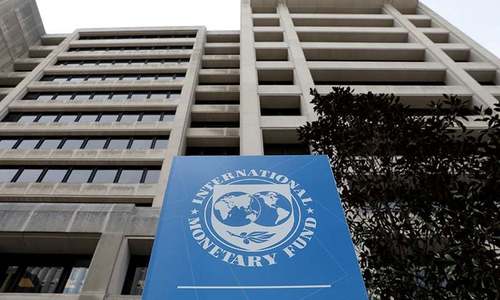ISLAMABAD: Underscoring the need for the IMF programme, Federal Board of Revenue (FBR) Chairman Dr Ashfaque Ahmed has said that the Fund is demanding reforms to increase the personal and corporate income taxes, removing GST distortions and achieving sustainable revenue collection mechanism.
Addressing the Pakistan Prosperity Forum 2021 here on Wednesday, Ashfaque Ahmed said, “The reforms in personal income tax are among the demands of the IMF as currently, the country is under the Fund program. We will be bringing soon reforms in Personal Income Tax and removing distortions in GST.”
He also said that he is not personally in favor of securing loans of $400 million from the World Bank (WB) under the Pakistan Raises Revenues (PRR) project to bring about reforms in the FBR but the Ministry of Finance required foreign exchange, so they extended support to it.
The chairman FBR said that the tax machinery used to get rupee components as the Ministry of Finance required foreign exchange to meet its obligations.
He said that the rupee component was given through supplementary grants and in the last fiscal year, the FBR was provided Rs2.5 billion in May 2021 when there was not sufficient time left to utilise the resources. The FBR is still resource-starved, he added.
He said that the FBR was facing numerous challenges on account of the fragmented fiscal base where the Centre and the provinces possessed divergent jurisdictions under the Constitutional obligations.

The collection of Agriculture Income Tax (AIT) and GST on services lies with the provinces, he said. The FBR has offered the provinces to share the data and sought permission to collect the AIT on the behalf of provinces and is still awaiting the response of the federating units.
He outlined various other challenges faced by the FBR, including a lack of automation, low compliance rate, data compartmental approach, complicated tax laws, retail rigidities, lack of capability to capture supply chains for taxability, mis-Invoicing, smuggling, and financial and administrative autonomy for tax administration.
He also said that the National Tax Agency was also on the cards, however, the harmonisation of taxes was one of the top priorities of the government.
The FBR chairman said that the tax body’s tax-to-GDP ratio stood at 10 percent while the expenditure to GDP ratio was over 20 percent, so there was an increased fiscal stress to collect more revenues to run the affairs of the state.
He said that there were 7.1 million registered tax filers out of which only 3.1 million filed income tax returns and there was still a gap of 4 million return filers. Although, he said, the number of filers increased from 1.4 million in 2015 to 3.1 million in 2021, the tax yield on the basis of per filer had come down that needed to be reversed.
FBR envisages a 10-point plan to place Smart Taxation Model
He said that the FBR envisaged a 10-point plan to place Smart Taxation Model under which the focus was on centralized planning and centralized monitoring, bringing automation, revenue resource alignment, jurisdiction re-alignment, restoration of tax administration credibility, crackdown on smuggling, complaint redressal mechanism internally, Regional Taxpayer Offices (RTOs) free of tax target and facilitation.
He said that the administrative cost of FBR stood at 0.6 percent of total collected revenues out of which 80 percent was utilized for payment of salaries of the workforce. He also said that the FBR’s collection remained flat at Rs3.8 trillion in three years from 2017 to 2019 but it went up to Rs4.734 trillion in 2020-21. In the first four months (July-Oct) period, he said that the FBR collection exceeded its target by Rs235 billion and collected Rs1.842 trillion in the first four months of the current fiscal year.
Answering a query, he said that Pakistan had never breached the OECD confidentiality clauses for the exchange of information. When asked who would be held responsible for achieving flat revenue growth from the tax year 2017 to 2019, he said that he did not want to comment but added that the FBR required an improved system and more oversight to get the desired performance.


